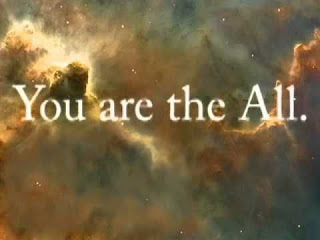The work of the Holy Spirit.
Always an interesting topic!
Definition: The work of the Holy Spirit is to manifest the active presence of God in the world, and especially in his church. ....the one present to do God's work in the world.
Already in Genesis 1:2, "the Spirit of God was moving on the face of the waters."
The Holy Spirit manifests Gods presence in the new covenant age.
The Holy Spirit brings God's blessing in the following ways:
1. Empowers.
Gives and sustains both physical life and spiritual regeneration.
Empowers God's people for service.
Although the Holy Spirit was involved in Old Testament people's lives, it is much more clear in the New Testament. "You shall recieve power when the Holy Spirit has come upon you...."
Gives spiritual gifts to Christians for service. "When spiritual gifts are active, it is another indication of the presence of God the Holy Spirit in the church."
2. Purifies.
The Holy Spirit sanctifies us and cleanses us from sin. He gives us the fruit of the spirit, which makes us more Christ-like.
3. Reveals.
Revelation of God's words to the apostles and prophets.
Gives evidence of God's presence.
Guides and directs God's people. We as Christians need to take the example of the New Testament as the Holy Spirit clearly led his people, and have the Holy Spirit's leading in our lives. This is not just a matter of following scripture and common sense, but also being aware of the blessing or lack of peace as one goes about life.
He provides a Godlike atmosphere when he manifests his presence.
He gives us assurance.
He teaches and illumines. He helps us remember his word, and helps us understand God's word.
The Holy Spirit unifies.
The Holy Spirit gives stronger or weaker evidence of the presence and blessing of God according to our response to him. (are we sinning and quenching the spirit).
Always an interesting topic!
Definition: The work of the Holy Spirit is to manifest the active presence of God in the world, and especially in his church. ....the one present to do God's work in the world.
Already in Genesis 1:2, "the Spirit of God was moving on the face of the waters."
The Holy Spirit manifests Gods presence in the new covenant age.
The Holy Spirit brings God's blessing in the following ways:
1. Empowers.
Gives and sustains both physical life and spiritual regeneration.
Empowers God's people for service.
Although the Holy Spirit was involved in Old Testament people's lives, it is much more clear in the New Testament. "You shall recieve power when the Holy Spirit has come upon you...."
Gives spiritual gifts to Christians for service. "When spiritual gifts are active, it is another indication of the presence of God the Holy Spirit in the church."
2. Purifies.
The Holy Spirit sanctifies us and cleanses us from sin. He gives us the fruit of the spirit, which makes us more Christ-like.
3. Reveals.
Revelation of God's words to the apostles and prophets.
Gives evidence of God's presence.
Guides and directs God's people. We as Christians need to take the example of the New Testament as the Holy Spirit clearly led his people, and have the Holy Spirit's leading in our lives. This is not just a matter of following scripture and common sense, but also being aware of the blessing or lack of peace as one goes about life.
He provides a Godlike atmosphere when he manifests his presence.
He gives us assurance.
He teaches and illumines. He helps us remember his word, and helps us understand God's word.
The Holy Spirit unifies.
The Holy Spirit gives stronger or weaker evidence of the presence and blessing of God according to our response to him. (are we sinning and quenching the spirit).

.jpg)






